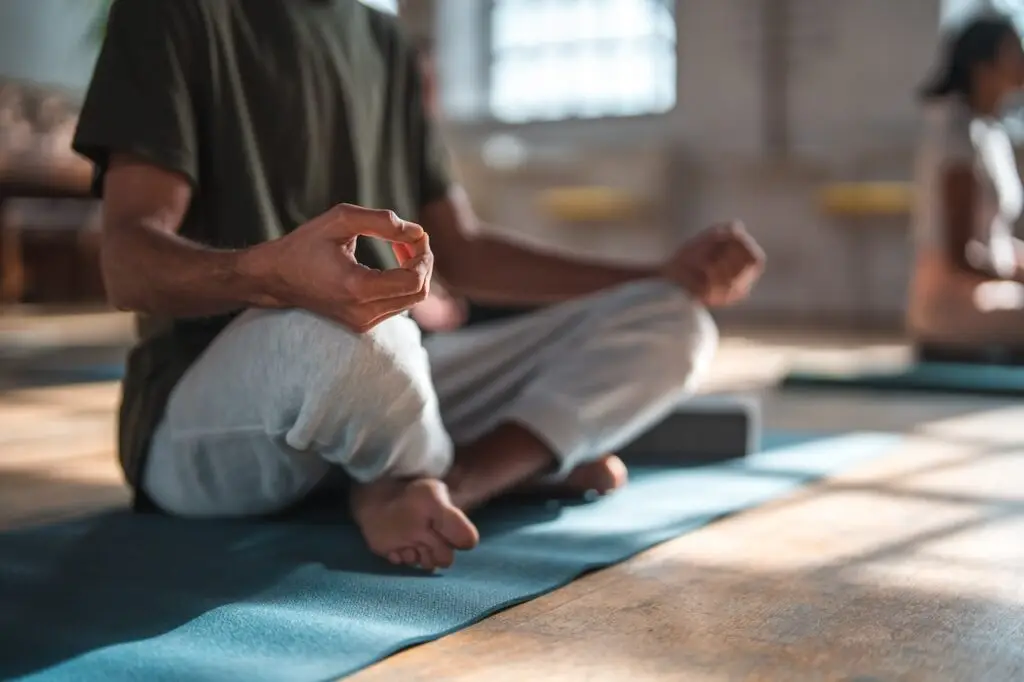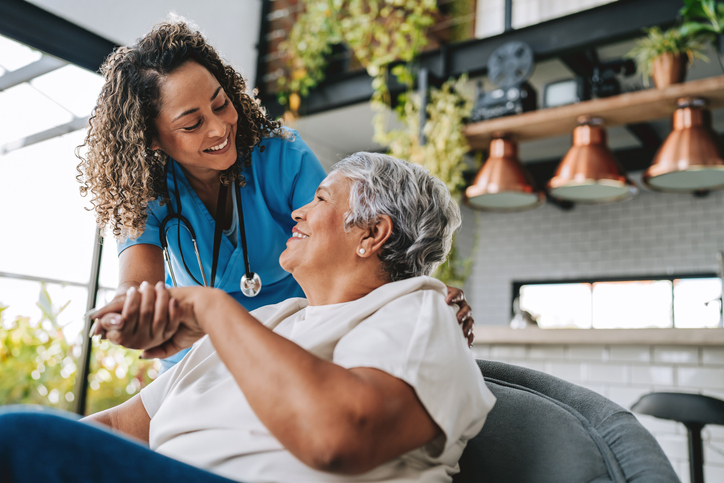We had the privilege of hosting City of Hope’s Dr. Krisstina Gowin to discuss the growing field of integrative oncology. Dr. Gowin is a board-certified Integrative Hematologist and Oncologist and co-chair of the Society for Integrative Oncology’s Education Special Interest Group. She’s passionate about helping patients understand the benefits of integrative oncology during treatment and into survivorship. View the full webinar for an engaging discussion on this topic.
Below is a brief overview of some of the discussion points transcribed from the webinar.
The following questions and responses have been lightly edited for grammatical purposes.
1) Can you break down what integrative oncology is and who it is for?
An important place to start is defining integrative oncology and there are a lot of definitions out there. In 2017, we as a community within integrative oncology and specifically within the Society for Integrative Oncology, decided to make a true, evidence-based definition so we’re all aligned on how we define this. I’m actually going to read that to you.
“Integrative oncology is a patient-centered, evidence-informed field of cancer care that utilizes mind and body practices, natural products, and/or lifestyle modifications from different traditions alongside conventional cancer treatments. Integrative oncology aims to optimize health, quality of life, and clinical outcomes across the cancer care continuum and to empower people to prevent cancer and become active participants before, during, and beyond cancer treatment.”
Here’s where I differ with the definition. I think it really should be “and lifestyle modifications.” It’s different traditions alongside conventional cancer care. That’s what makes it different from alternative or complementary medicine. It’s integrative. It’s alongside what we do in conventional cancer care, so we’re still doing surgery, radiation, immunotherapy, etc.
Evidence-based guidance powered by NCCN Guidelines®
Personalized treatment plans shaped by the latest oncology standards—tailored to your diagnosis.
Get started
View your personalized treatment plan in the Outcomes4Me app
Use your diagnosis to unlock personalized NCCN Guidelines®-aligned recommendations.
Continue in app
Another really important aspect of integrative oncology is that it empowers you all. It gives you something that you can do to change outcomes. So, that’s the official definition. It’s all of the things that we can do to partner in your journey to support you. It’s exercise, nutrition, mindfulness, and lifestyle modifications. It’s some of the ancient traditions like acupuncture, Chinese medicine, and Ayurveda. All of these different things can potentially be partnered and have different levels of evidence. With all of it together, we have these personalized approaches where there’s no one-size-fits-all. It’s a give-and-take approach with your integrative medicine and oncology provider, your goals, culture, and symptoms, to tailor an integrative plan specific to you.
When I see patients in the clinic, I like to put it into different domains. I have this diagram and in the middle is conventional cancer care. Then, we put a lifestyle/medicine bubble and a mind-body bubble. There’s a joy bubble because I think it’s so critically important to be thinking about joy, why we want to treat cancer, and what is [our] purpose and meaning. Finally, there’s meaning and connection and that’s different for each person too. What makes you feel connected to the world around you? That may be spirituality, or it may be nature. That’s how I look at integrative oncology.
2) Can integrative oncology enhance the efficacy of standard treatments and help with treatment side effects? What are the benefits?
Yes to all of that and certainly quality of life. Many of our studies have been looking at quality of life and so many of the modalities improve quality of life. As a field, what we’re trying to do is to go a step further. Yes, we want quality of life, but we also want less treatment toxicity, improved progression-free survival, and overall survival. We want to start saying, “How is it working? Are we impacting the microbiome?”
I think the field is moving away from quality of life and going into harder endpoints of changing efficacy, survival, and there’s robust science associated with it, which is a really exciting paradigm shift for integrative oncology.
3) There’s a lot of discussion surrounding mind-body techniques and mindfulness. Can you explain how it works and what the benefits are?
Mindfulness is one of our best-studied, evidence-based modalities in integrative oncology and this is a great segue into our guidelines. So there’s the American Society of Clinical Oncology, which is the organizing body in traditional hematology/oncology care. It curates many of our guidelines that hematology/oncology physicians follow and has partnered with the Society for Integrative Oncology. Together, we have formulated guidelines looking at all of the evidence we’ve built over decades in different domains of integrative oncology.
Circling back to mindfulness, it’s highlighted in almost all of our guidelines we have for pain. We have guidelines for anxiety, depression, [and] fatigue, and mindfulness is one of the strongest recommended modalities. But what is mindfulness? Mindfulness is a type of mindful awareness. It’s a type of meditation, breathing technique, or mind-body practice. Essentially, it’s non-judgmental awareness, so being aware of your breath, how your body feels in space, how your feet are contacting the floor, and how your body is contacting your chair. You’re aware of your emotional and mental landscape and thoughts. Things will come in, thoughts will float in and out. You’re just watching them and naming them nonjudgmentally. Mindfulness is all of that. It has been shown to decrease pain, anxiety, depression, fatigue, and many other things. I think it’s working largely through the stress response. We know when we’re stressed, we’re pumping out all of these interesting hormones and chemicals like cortisol, epinephrine, and norepinephrine. Mindfulness has been shown to change that landscape. It cools the inflammatory stress hormones that we tend to experience in our day and age that we live in, particularly when you’re dealing with cancer. Mindfulness helps to cool the inflammation, decrease stress, and change the environment in the bloodstream, which then changes the environment around cancer cells.
There are lots of interesting papers and data around that. Mindfulness is just one strategy. There’s progressive muscle relaxation, different kinds of visualization, and meditative movement as well. Things like Tai Chi and yoga also have huge amounts of evidence supporting the management of the symptoms we talked about and changing the landscape of inflammation. Inflammation is one of those central things we really want to modulate when we’re thinking about cancer and its pathogenesis, propagation, and metastasis. All of that is anchored into inflammation and mindfulness can modulate inflammation.
Interested in learning more about integrative oncology? Check out the links to resources below.
Integrative oncology resources
- Society for Integrative Oncology: Includes a tab with the pain, anxiety, depression, and fatigue guidelines mentioned in the webinar
- CancerChoices: Integrative oncology resource with a patient and caregiver focus
- Oncio: Free mindfulness-related practices
- Yoga Bridge: Free yoga programs for people with cancer
- Healing Works Foundation: Guided imagery meditation
View the full webinar with Dr. Gowin here.
Personalized support for real care decisions
Understand your diagnosis, explore clinical trials, and track symptoms--all in one place.
Get started
Compare treatments, prepare for appointments, and track side effects—all in the app
Built for your diagnosis, Outcomes4Me gives you the tools to make confident, informed decisions—right when you need them.
Continue in app






